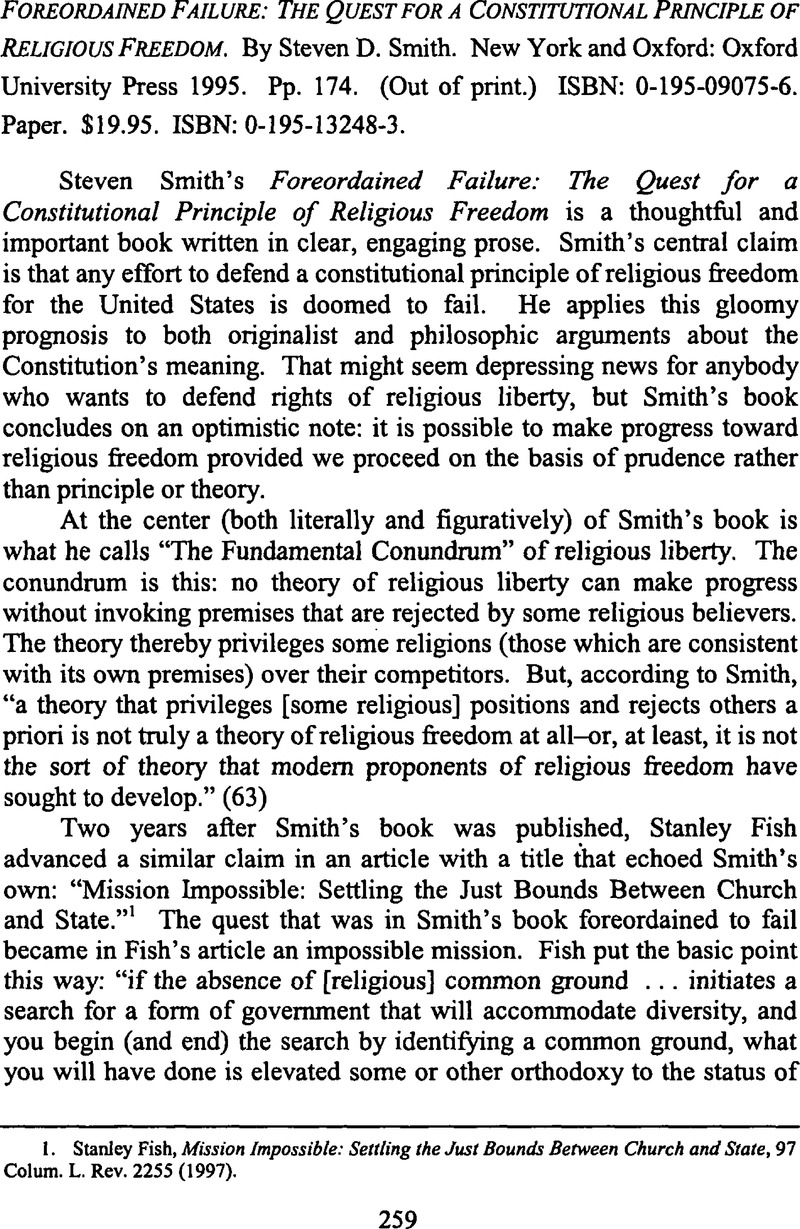No CrossRef data available.
Article contents
Foreordained Failure: The Quest for a Constitutional Principle of Religious Freedom. By Steven D. Smith. New York and Oxford: Oxford University Press1995. Pp. 174. (Out of print.) ISBN: 0-195-09075-6. Paper. $19.95. ISBN: 0-195-13248-3.
Published online by Cambridge University Press: 24 April 2015
Abstract

- Type
- Review Essays and Reviews
- Information
- Copyright
- Copyright © Center for the Study of Law and Religion at Emory University 2000
References
1. Fish, Stanley, Mission Impossible: Settling the Just Bounds Between Church and State, 97 Colum. L. Rev. 2255 (1997)CrossRefGoogle Scholar.
2. Id. at 2264.
3. Lawrence G. Sager and I have explored this point at greater length in a review essay devoted partly to Smith's book. Eisgruber, Christopher L. & Sager, Lawrence G., Unthinking Religious Freedom, 74 Tex. L. Rev. 577, 595–600 (1996)Google Scholar.
4. Lawrence Sager and I have elsewhere claimed that it cannot be. Eisgruber & Sager, supra n. 3, at 591-592. Stanley Fish also claims that Smith's conclusions and critique are inconsistent with one another. Fish, supra n. 1, at 2320-2324.
5. Sager and I elaborate this point at greater length in Eisgruber & Sager, supra n. 3, at 597600, 602-612.
6. I am not sure whether Fish would agree with this conclusion. There is some evidence to suggest that he would. For example, he says that the point of his article is not to critique theories which “proceed from a strong angle of conviction”; he is concerned with those theories that make it their “project … to proceed from no angle, or from an angle so wide that it takes in everyone, no matter what his or her religion, political affiliation, ethnic identification, etc.” Fish, supra n. 1 at 2257.




